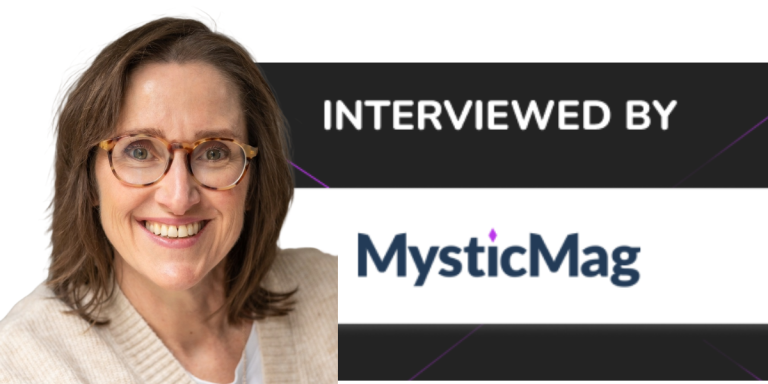Treatment for Burnout for Health and Social Care Professionals
Table of Contents
Treatment for Burnout for Health and Social Care Professionals
Health and social care professionals dedicate their lives to helping others. But with increasing budgetary constraints, pressure to deliver more with less, and the emotional toll of caregiving, many in the field are struggling with burnout. If you’re feeling overwhelmed, emotionally exhausted, or disconnected from your role – you are not alone, and support is available.
Understanding Burnout in Health and Social Care
Burnout is more than just feeling tired after a long shift. It’s a state of chronic physical and emotional exhaustion, often accompanied by cynicism, detachment, and a reduced sense of personal accomplishment. For health and social care professionals, these feelings can be compounded by trauma, high patient loads, and lack of systemic support.
Common Signs of Burnout
- Feeling emotionally drained or numb
- Increased irritability or a “short fuse”
- Difficulty concentrating or managing time
- Forgetfulness and mental fatigue
- Detachment from patients or clients
- Reduced performance or increased mistakes
When burnout sets in, it doesn’t just affect your job – it affects your wellbeing and personal relationships, too.
Why Counselling and Energy Medicine Can Help
I specialise in mental health support for health and social care professionals. My counselling services are designed to explore how your work is affecting your mental and emotional health. Whether you’re experiencing burnout, anxiety, or both, I provide a mind and body approach to help you heal, reset, and rebuild your resilience.
My treatment is delivered by myself, an experienced Energy Medicine Therapist with over 30 years in the healthcare system, including extensive work as a Senior Cardiac Nurse. This unique blend of clinical insight and energy-based healing provides a powerful, integrated path to recovery.
My Approach to Treatment
- A safe, confidential space to be heard without judgement
- Personalised mental health strategies tailored to your needs
- Tools to help manage stress, anxiety, and emotional fatigue
- Support to improve concentration, focus, and emotional regulation
- Long-term strategies to prevent burnout from recurring
My goal is to help you reconnect with your purpose, regain control over your life, and feel empowered in your role again.
Anxiety and Burnout: A Common Link
Burnout often goes hand-in-hand with anxiety. In health and social care, where the stakes are high, anxiety can quickly shift from manageable worry to a disruptive and distressing force.
Symptoms of Anxiety in Health and Social Care Professionals
- Freezing or delayed reactions in crisis situations
- Increased frequency of mistakes or misjudgements
- Feeling on edge or overly alert, even during rest
- Sleep disturbances and chronic fatigue
- Constant self-doubt and fear of failure
If these symptoms sound familiar, it might be time to explore anxiety therapy as part of your treatment plan.
Rebuild Your Resilience with Support That Understands You
Burnout doesn’t mean you’re weak – it means you’ve been strong for too long without the support you need. Whether you’re in nursing, social work, mental health services, or any caregiving role, I am here to walk beside you.
You’ll be working with a practitioner who understands the pressures of healthcare from the inside, with decades of experience supporting frontline professionals. Together, we’ll identify the root causes of your burnout, strengthen your emotional resilience, and implement effective coping strategies – so you can thrive again, both professionally and personally.
Frequently Asked Questions
Q: What mental disorders do healthcare professionals have?
A: A recent meta-analysis of 40 systematic reviews, encompassing data from 1,828 primary studies and over 3.2 million participants, found that the most common mental health conditions affecting healthcare professionals during the COVID-19 pandemic were anxiety (16% – 41%), depression (14% – 37%), and stress or posttraumatic stress disorder (18.6% – 56.5%).
Q: Who burnout healthcare workers?
A: Workplace systems cause burnout among health workers. There are a range of societal, cultural, structural, and organisational factors that contribute to burnout among health workers. Some examples include: excessive workloads, administrative burdens, limited say in scheduling, and lack of organisational support.
Q: Which healthcare profession has the highest burnout rate?
A: Emergency medicine professionals and nurses face some of the highest burnout rates in healthcare. One study reported that 32% of emergency medicine trainees were at the greatest risk for burnout, surpassing other demanding specialties such as internal medicine, surgery, and obstetrics / gynaecology. Nurses, especially those working in hospital environments, are also frequently identified as experiencing significant levels of burnout.
Q: What is the most stressful healthcare job?
A: Acute Care Nurses. These professionals typically work in high-intensity environments such as trauma units, intensive care units (ICUs), and emergency departments. The critical nature of the conditions they manage means acute care nurses are frequently exposed to intense stress and emotional pressure.
Q: What Are the Most Common Symptoms of Burnout Among Healthcare Workers?
A: Burnout in healthcare professionals often presents through a combination of emotional, physical, and behavioural symptoms. The three most common signs include:
Exhaustion – This refers to a persistent state of physical and emotional fatigue. Healthcare workers experiencing burnout often feel drained and depleted, with energy levels that continue to decline over time.
Depersonalisation – Characterised by increased cynicism, sarcasm, or emotional detachment, this symptom may show up as a negative or indifferent attitude toward patients or colleagues. It can also include a growing sense of frustration and the urge to vent about work.
Reduced Sense of Efficacy – This involves feeling ineffective or unaccomplished in your role. You may begin to question the impact of your work or doubt your ability to make a meaningful difference, even if evidence suggests otherwise.
Q: Which Professions Are Most Affected by Mental Health Issues?
A: While depression and other mental health challenges can affect individuals in any profession, research has identified certain careers as being particularly high-risk. These include social workers, disability lawyers, long-term care administrators, nurses, mental health counsellors, and first responders – roles that often involve high emotional demands and exposure to trauma.
Q: What Can I Do If Depression Is Impacting My Ability to Work?
A: If you’re struggling to function at work due to depression, you’re not alone – and help is available. Speaking with a mental health professional is an important first step. Therapy, counselling, and support services tailored to your profession can provide tools for coping, recovery, and building resilience. Don’t hesitate to reach out – your wellbeing matters.
Q: What is the most common age for burnout?
A: Millions of people experience burnout, and research shows that the average age for first-time burnout is just 32. If you’re feeling overwhelmed or emotionally drained, know that you’re not weak, flawed, or a failure. Burnout is not a mental illness – it’s a response to prolonged stress, and it’s more common than you think. There’s no shame in seeking support.
Q: Which Mental Health Conditions Can Make It Difficult to Maintain Employment?
A: Several mental health conditions can significantly impact a person’s ability to work consistently. Among the most common are severe depression, anxiety disorders, post-traumatic stress disorder (PTSD), and bipolar disorder. These conditions can affect focus, energy levels, emotional regulation, and daily functioning – making it challenging to sustain regular employment. Seeking the right support and treatment can make a meaningful difference.
Q: What Is ADHD Burnout?
A: ADHD burnout is a deep state of mental, physical, and emotional exhaustion that results from the ongoing effort to manage ADHD symptoms alongside everyday responsibilities. It goes beyond typical tiredness – it’s a profound loss of energy and motivation that can make it difficult to concentrate, regulate emotions, and complete tasks. This type of burnout often builds up over time due to the constant strain of trying to keep up.
Ready to Begin Your Healing Journey?
Take the first step toward recovery with support from someone who truly understands the healthcare world.
Book your free 30 minute consultation today or call 07902 161675.
You deserve care, too.






